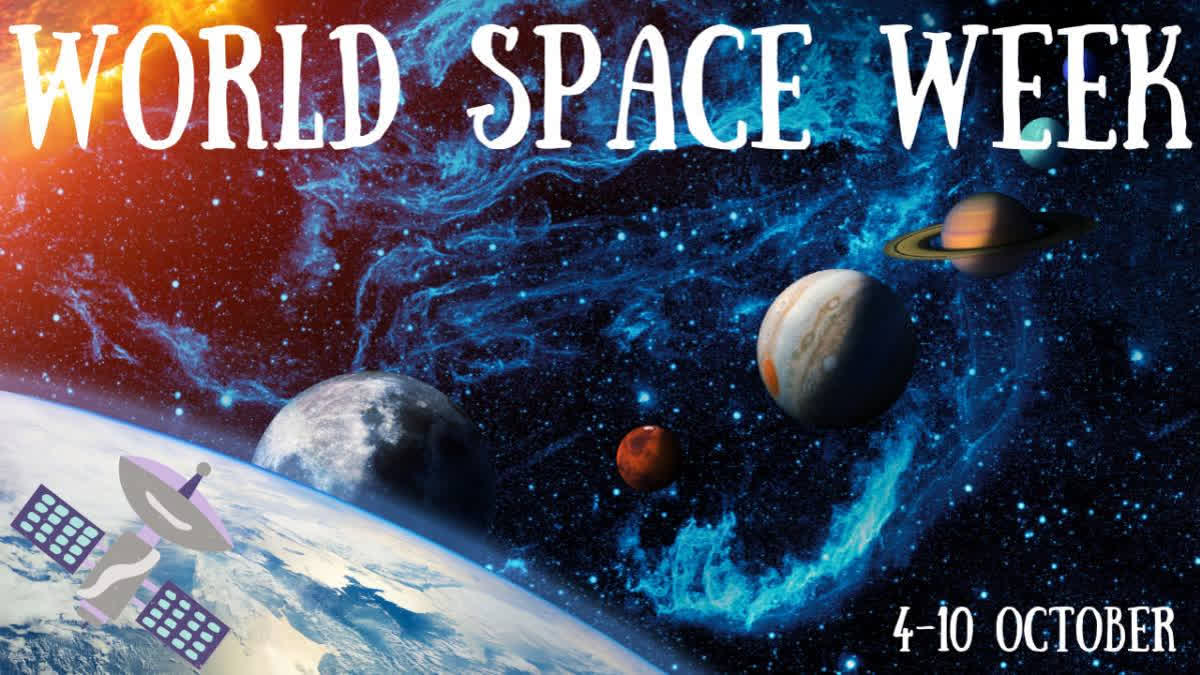New Delhi: World Space Week is an annual event celebrated from October 4 to 10, highlighting the benefits of space exploration and promoting international cooperation in space activities. Established by the United Nations, it commemorates two significant milestones: the launch of Sputnik 1 on October 4, 1957, and the signing of the Outer Space Treaty on October 10, 1967.
Each year has a specific theme, focusing on different aspects of space science and technology. During this week, organizations, educational institutions, and space agencies around the world organize various activities, such as workshops, lectures, exhibitions and community events to engage the public and inspire interest in space.
History
World Space Week has a rich history that dates back to the late 20th century.
Origins
- 1957: The launch of Sputnik 1 by the Soviet Union on October 4 marked humanity's first artificial satellite in orbit. This event is considered the beginning of the space age.
- 1967: The Outer Space Treaty was opened for signature on October 10, establishing a framework for international space law and promoting peaceful exploration of space.
Establishment
- 1999: The United Nations declared World Space Week an international celebration, designating it as an annual event to promote awareness and appreciation of space science and technology.
Growth and Impact
- 2000: The celebration gained momentum as more countries and organisations began participating, organising events ranging from educational programmes to exhibitions and public outreach.
- Themes: Each year features a specific theme that highlights different aspects of space exploration and its benefits. Themes have included topics like satellite technology, earth observation and the importance of space exploration for humanity.
Current Day
- Today, World Space Week is recognised globally, with events held in over 90 countries. Schools, universities, space agencies, and community organisations engage the public, fostering interest in STEM (science, technology, engineering, and mathematics) fields.
World Space Week continues to serve as a platform for celebrating space achievements and promoting international cooperation in space activities. It encourages new generations to explore and engage with the wonders of the universe.
Significance of World Space Week
It creates awareness about space science and technology, encouraging educational institutions to engage students in STEM (science, technology, engineering, and mathematics) fields. This can inspire future generations of scientists, engineers, and explorers. The week fosters global collaboration in space exploration. By bringing together organisations, countries, and individuals, it emphasises the importance of working together to address challenges related to space activities.
World Space Week showcases the benefits of space technology in everyday life, such as advancements in communication, weather forecasting, disaster management and environmental monitoring. It serves as an opportunity to celebrate historical milestones in space exploration, such as the launch of Sputnik and the signing of the Outer Space Treaty, reminding us of humanity's progress in understanding the universe. By focusing on the importance of space exploration, World Space Week promotes innovation and research in various fields, leading to new technologies and solutions for global challenges. The week promotes cultural exchange and understanding through shared experiences and interests in space, highlighting how different countries contribute to space exploration. World Space Week is a vital platform for promoting knowledge, collaboration, and enthusiasm for space exploration and its myriad benefits to society.



